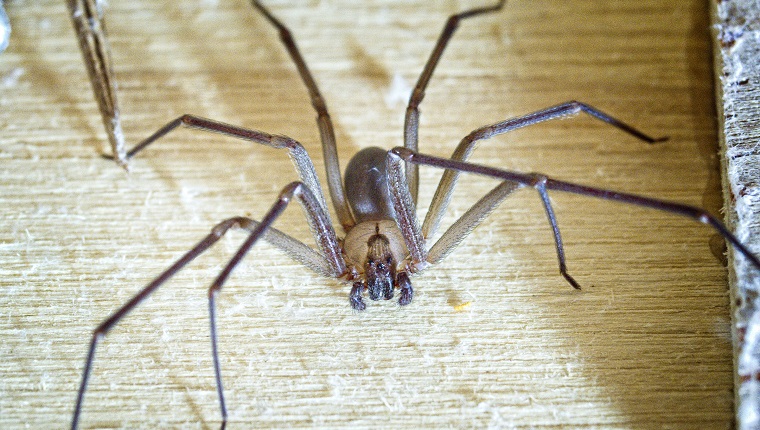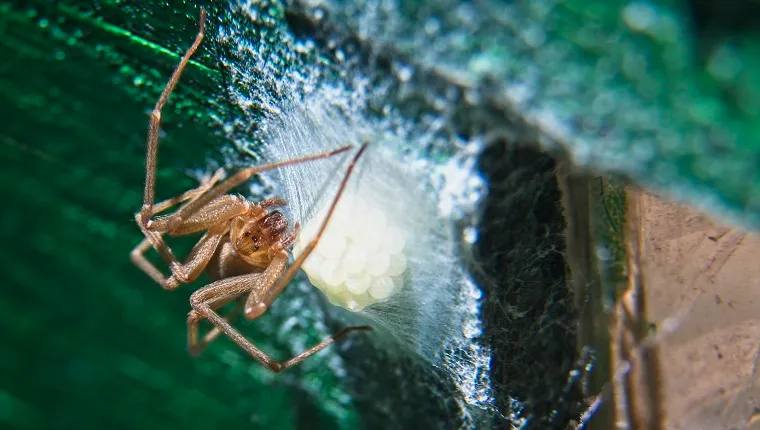Brown recluse spider bite poisoning in cats occurs when a brown recluse bites and injects its venom. It can bring on a range of symptoms, with the venom capable of being fatal.
These spiders most commonly live in the Midwest of the US. They’re sometimes also called violin spiders or fiddle-back spiders because they often have a violin-shaped marking on their upper bodies.
If you see signs that a spider may have bitten and poisoned your feline, then you must consult your veterinarian for a proper diagnosis and course of treatment. Here’s what you should know about the symptoms, causes, and treatments of brown recluse spider bite poisoning in cats.
Symptoms Of Brown Recluse Spider Bite Poisoning In Cats
Brown recluse spider bite poisoning in cats sometimes won’t result in any symptoms. But in other cases, some of the most common symptoms include:
- White lesion
- Fever or chills
- Anemia
- Local pain at the point of the bite
Causes Of Brown Recluse Spider Bite Poisoning In Cats

Poisoning happens when brown recluses bite cats.
Cats may have a higher risk of being bitten than dogs due to the spiders being more active at night.
Serious complications, like necrosis of body tissue, can happen if cats don’t receive prompt treatment and the venom spreads through the body. In severe cases, this can result in the amputation of affected body parts.
Veterinary Treatments
If you worry that your kitty is suffering from brown recluse spider bite poisoning, your veterinarian will want to carry out a full examination and ask about any symptoms.
Blood tests are key to diagnosing spider bite poisoning, and in some cases, vets can carry out a test to check for brown spider venom in the bloodstream.
Treatment depends on the severity of the bite and poisoning. At first, treating the wound is key. A cold compress can help bring down any swelling.
In more severe cases, vets may consider intravenous therapy and blood transfusions. If the poison has spread, the vet may need to amputate a limb.
In all cases, it’s important to get to the vet quickly so that the poison has less time and opportunity to spread.
Has your cat ever suffered from brown recluse spider bite poisoning? What sort of symptoms did you see? Tell us all about it in the comments below.









